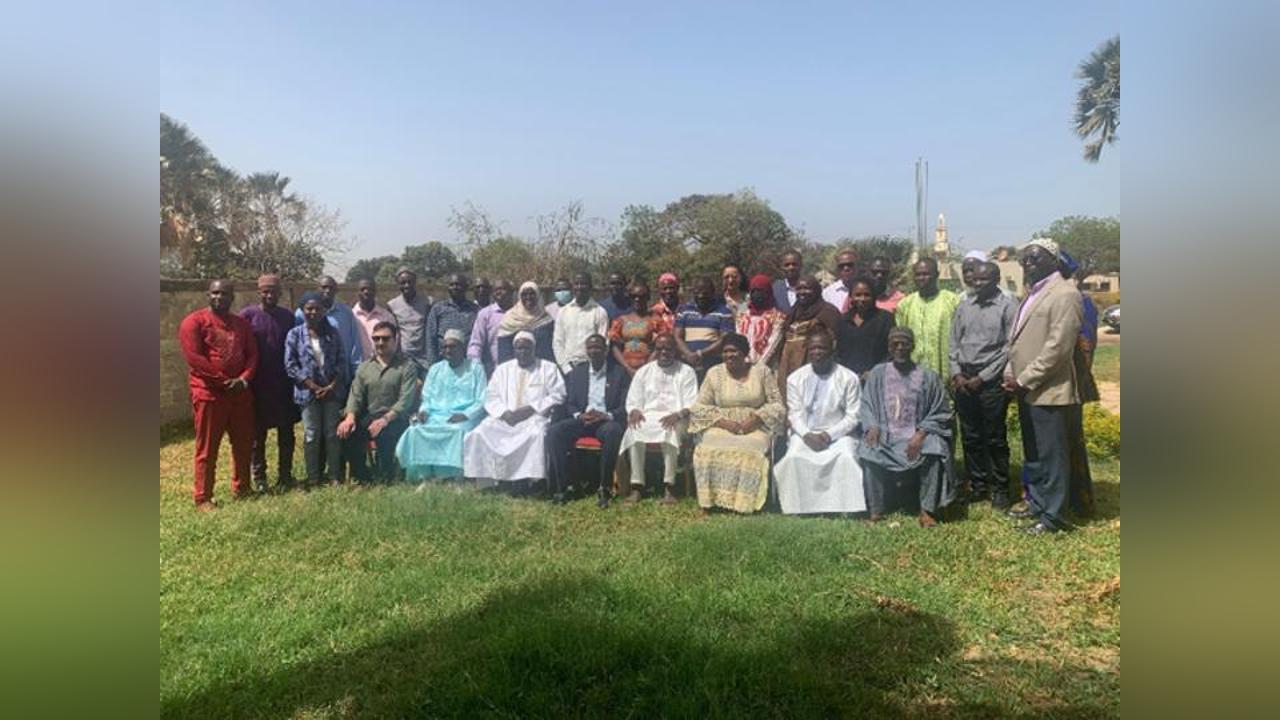Africa-Press – Gambia. The Monitoring, Reporting, and Verification (MRV) for the Climate Action Programme in The Gambia recently hosted a day-long national inception workshop focused on the development of regional climate action plan.
Held at the National Climate Action Centre – University of the Gambia campus, the event brought together a wide range of stakeholders from across the country.
The representatives were drawn from the Nationally Determined Contributions (NDC) in-country facilitation team, the ministry of lands, regional authorities and focal persons, national and regional consultants, Pilot Lead Coordinators (PLCs) of the MRV for Climate Action Programme, civil society organisations, academia, and NGOs.
The primary objective of the workshop was to officially launch the regional climate baseline study and initiate discussions around the development of Regional Climate Action Plans. The sessions emphasised the critical role of local stakeholders in shaping and implementing effective climate action strategies.
The MRV for Climate Action Programme is a four-year initiative (2022–2026), funded by Environment and Climate Change Canada (ECCC) and implemented by NovaSphere. It aims to enhance multi-level climate governance in The Gambia. Under the programme, the Multi-level Climate Governance (MLCG) transformative pilot—titled “Strengthening Multi-level Climate Governance for Domestic Implementation of the NDC in The Gambia”—seeks to improve coordination, collaboration, and partnerships among key stakeholders at all levels.
Tomas Gomez, a representative of NovaSphere, highlighted the importance of regional climate planning.
“A key challenge, as seen in many countries, is that regional areas often have limited resources and varying priorities.”
Momodou Bah, representing the Governor of the West Coast Region, commended The Gambia’s ongoing climate policy efforts, including the National Climate Change Policy (2016–2025), the National Adaptation Plan, and the 2050 Climate Vision.
“The Gambia’s Long-Term Climate-Neutral Development Strategy 2050 (LTS) envisions net-zero greenhouse gas emissions by mid-century, focusing on sustainability, adaptation, and resilience while driving socio-economic growth. This workshop reflects our commitment to turning national climate goals into regional and local action.”
He expressed confidence that the inception workshop would kick-start a participatory process to assess regional climate vulnerabilities and build institutional capacity.
Mr Bah also emphasised that regional action plans will help communities become more resilient to climate impacts and promote sustainable development tailored to their unique needs.
David Gomez, Director of Local Governance at the Ministry of Lands, Local Governments, and Religious Affairs, stressed the importance of localised efforts.
“Local Climate Action Plans are essential for turning global commitments into practical outcomes at the community level. They empower municipalities and area councils to identify specific vulnerabilities, develop targeted strategies, and mobilise resources for sustainable development.”
Prof Sidat Yaffa, Director of WASCAL at UTG, noted the growing role of the National Climate Action Centre in climate data management.
“Very soon, this Centre will serve as a comprehensive repository for all types of climate data—accessible to everyone at no cost.”
The workshop set a collaborative tone for the next phases of the MRV for Climate Action Programme, aiming to align national climate ambitions with regional priorities and capacities.
For More News And Analysis About Gambia Follow Africa-Press






